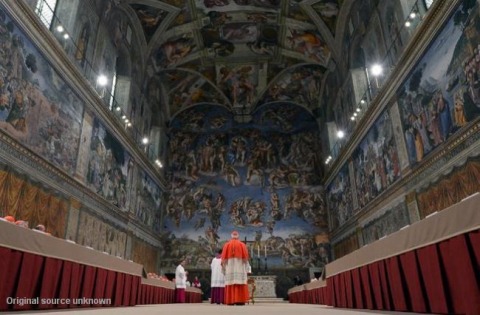
Why doesn’t the social witness of the Church have more influence than it does? With respect, I suggest that perhaps one reason is that sometimes those who represent the Church speak as though they don’t believe her social doctrine.
Case in point: The social doctrine of the Church distinguishes between just and unjust wars, recognizing that sometimes, as a last resort, the state must come out fighting. As the Catechism states, “All citizens and all governments are obliged to work for the avoidance of war. However, as long as the danger of war persists and there is no international authority with the necessary competence and power, governments cannot be denied the right of lawful self-defense, once all peace efforts have failed.”
In the view of the Church, just war is the right and necessary use of violence against another state, by public authority, subject to rigorous moral standards, for the sake of a just peace.
Why then does the highest representative of the Church declare that “faith and violence are incompatible”? I think the prisoners who were liberated from the Nazi death camps by the United States Third Army might have found it puzzling to hear that “Never has the use of violence brought peace in its wake.”
Taken at face value, such statements do not simply urge working for peace, avoiding war when possible, or waging war only justly. They obliterate the very distinction between just and unjust war. They further imply that every soldier is in a state of mortal sin. Such a teaching would not be a development of doctrine; it would be a reversal or annulment of doctrine.
Of course, no pope has the authority to reverse or annul doctrine, and according to a fundamental Catholic interpretive principle, papal statements should be read in continuity with what has always been held. So I do not suggest that the Holy Father does want to do this thing.
But it is not unreasonable to ask why he speaks so carelessly as to give such an impression. Four years into his papacy, he speaks in this confusing way about a growing number of topics.
I do not wish to exhibit anything less than respect. It could not be easy to be the Vicar of Christ, not only responsible for the spiritual direction of 1.3 billion Catholics, but also a visible symbol of the hope for unity among all Christians. I see, too, that he is seeking ways to communicate the Gospel more forcefully.
Yet surely it is not too much for the faithful to ask the Church’s highest teachers to express themselves in ways that clarify the Church’s teaching instead of scrambling it.
Archives